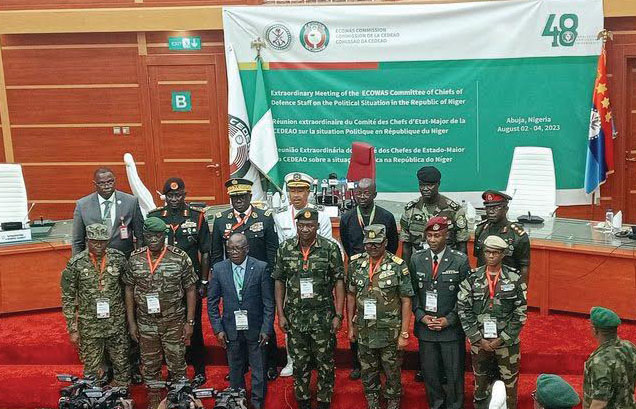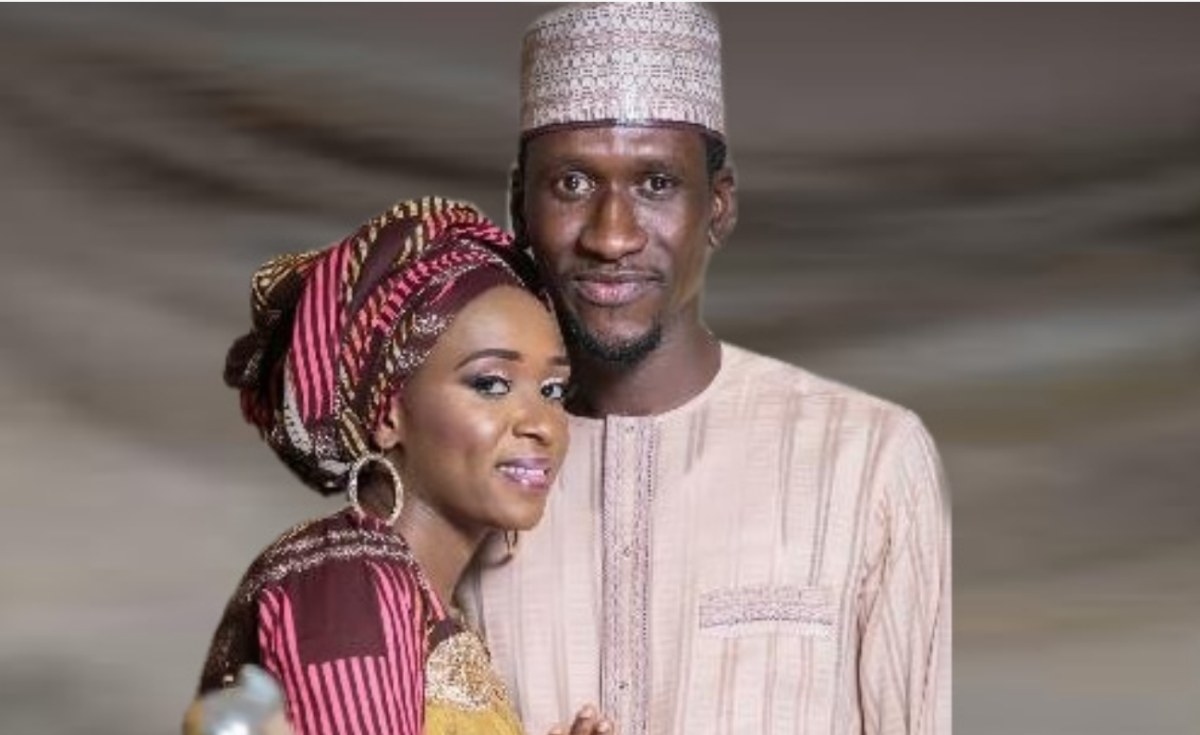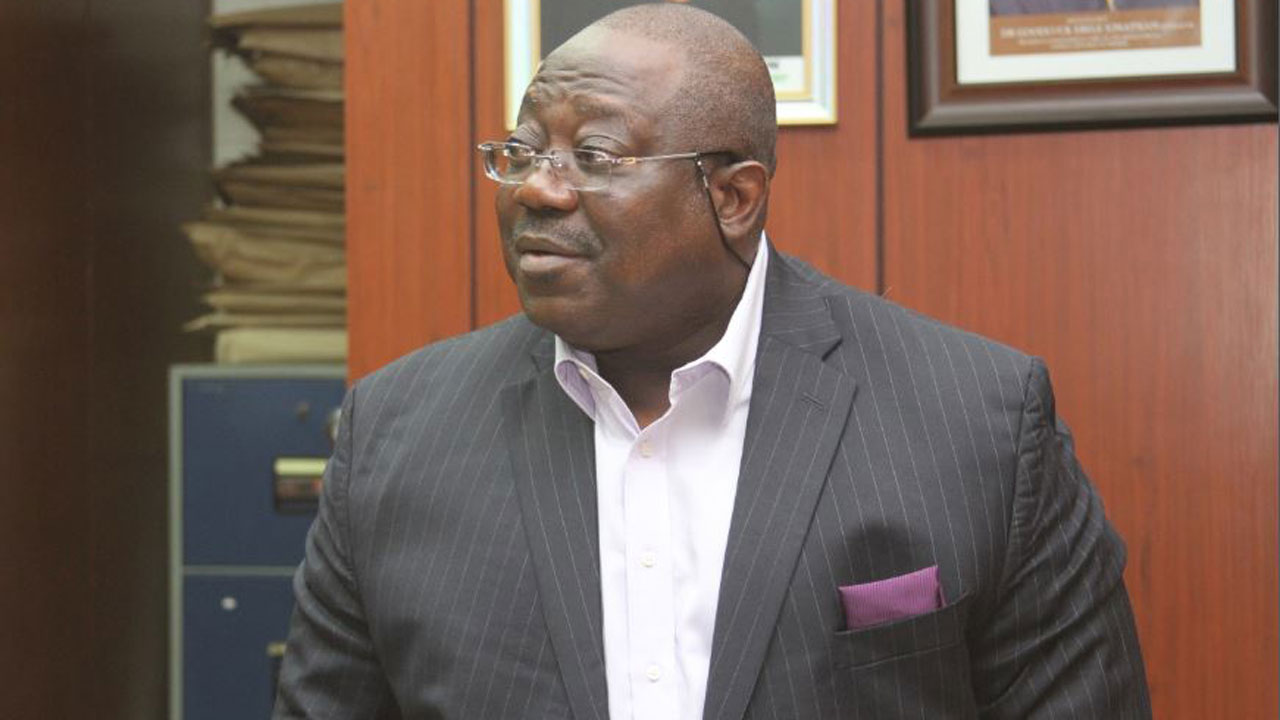
Everybody saw the coming disaster but the Economic community of West African States (ECOWAS) whose top leaders, the Heads of State and Governments of its Member States, except the four countries under military regimes they have outlawed -they blindly decided on July 30th that the military route is the wisest way to dislodge those militaries who staged a coup on July 26 against what they term a constitutionally elected President. That happened in Niger Republic. In an esprit the corps, the civilian rulers of the remaining 11 West African States declared they would go to war to ensure their mission to restore democracy in the hapless Sahelian nation is accomplished.
That was grandstanding at its worst. And immediately the feeling ran through the populace of the region and in far-flung regions of the world that in addition to talking tough to preserve their own status, the new political warriors were also suspected to committing an assisted suicide in the hands of France in a bid to help this lingering neocolonial power to maintain its grip on what is called its “pré-carré”, the francophone preserve made up of a confettis of remnants of its colonial past on the continent.
For Ecowas to unleash such a blow to the Nigeriens new leaders, many believe, there must be serious reasons. France’s minister of Foreign Affairs, Catherine Colonna said they had made the “coup de trop”, one drop too much, immediately echoed by Aïssata Tall Sall, her Senegalese counterpart, borrowing the same expression from her French conceptual leader, to justify the war rhetoric that shakes since then the whole West Africa.
Who may not see that under the threat to be the next domino to fall in a context when militarism or, to use a Nigerian concept, ‘militics’, is no longer a shame.
An Afrobarometer report recently stated that 53 percent of Africans feel now comfortable with that prospect. And a meeting held over the past ten days in Monrovia, Liberia, even posited that at least two coups d’Etat may rock West Africa before the year ends. That means we are now experiencing a race to the bottom.
Civilians who came to power in dubious conditions and entrenched themselves in all kinds of shenanigans have been among the loudest in the region’s leadership to call for a military intervention against the Nigeriens coup makers.
Their objective is to frighten the soldiers. To keep them away from the allays of political powers in a bid to maintain what had been the original arrangement after African nations gained independence, ie, that the political and military relations should be governed by the submission of the last groups to the formers.
That principle didn’t however survive long as, at the inception of African countries early years of political independence, over 60 years ago, the syndrome of the big men in power, ethnic-rule or bad governance made the first civilian rulers quickly become illegitimate -and hence the flurry of intrusion of military in African politics to rescue their nations as they cast their move.
In June 1999, at an Algiers Summit, held by the predecessor of the African Union (AU), namely the Organization of African Unity (OAU), African leaders, following a global trend towards democratization, on the back of the end of the Cold war with the demise of the communism, vertical, leadership, agreed to change the continent’s polity.
They decided that a pact making the military return to the barracks, controlling national borders, ensuring a secure national atmosphere and providing military engineering for national development and infrastructure would be matched by an improved, democratic, governance of the politics by the civilians.
That deal fell apart in light of the gross failure of civilians’ rulers to live up to their promise to do better than their Kaki counterparts.
What happened in Niger falls in that context where civilians once they get to power practice ‘one man, one vote, once’, never willing to exit democratically nor manage the resources of their countries for the national interest but for their private yearnings.
What prompted Ecowas to wade in with the warmongering language may have also to do with the fact that many of its national leaders have a conscience problem. Some of them, if not many, know they have not been elected in a transparent manner; others carry a lot of baggage having looted their countries’ purses and natural resources; and, worse, there are those who have blood in their hands considering their human-rights abuses and even killings.
The Niger military safari they recklessly validated is not surprising for any careful observer of politics in places where democracy is just a tool for achieving private goals.
The world indeed knows that when leaders, in such environments, get confronted at home with challenges that affect negatively their popularity or legitimacy, one of the ways to extricate from their declining lot is to find a way to distract the attention of their compatriots is by finding a scapegoat or distracting project.
In this regard, the fastest bet is to create a war. Argentinian militaries did just that by engaging over forty years ago in a war against the United Kingdom around the disputed Falklands/Malvinas Islands.
The Niger coming war -if ever it passes the rhetoric level- is not just one about going after a bunch of coup makers nor a derivation conflict alone.
Who is not aware of the geopolitics behind it? Here comes to mind France’s role in this saga. As, clearly, losing her grip on the former colonies she maintains through a solid web of indirect neocolonial strategies in Africa, including the control of their money, the supervision of their resources and security apparatus and the selection of their leaders, acting on her behalf and interests, France has been a driving force behind the tough stance Ecowas has taken on Niger. Even to the poing where it has mobilized the international community, from the United Nations, The AU, The European Union and of course Ecowas puppets eager to serve her wishes.
To be continued tomorrow
Gaye, is a former Director of Communication of ECOWAS, and the author of Hostage of a State (Editions L’Harmattan) that recounts his ordeal.






